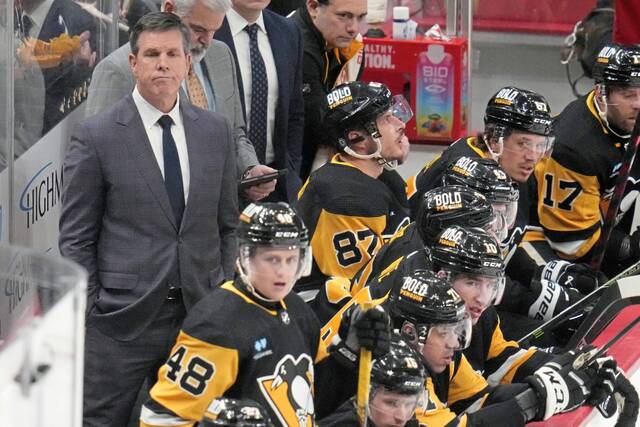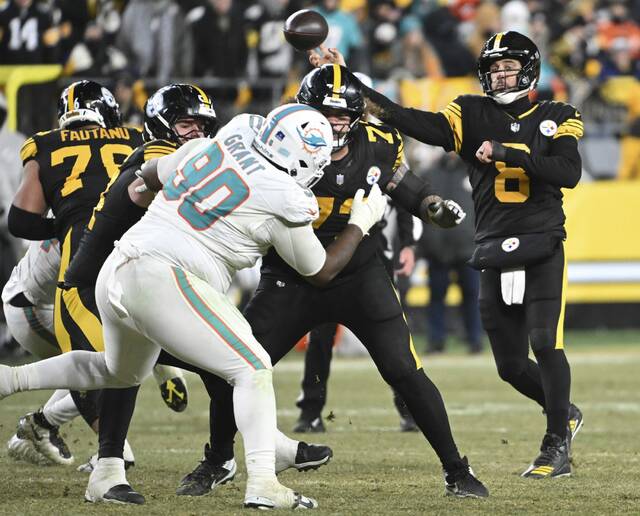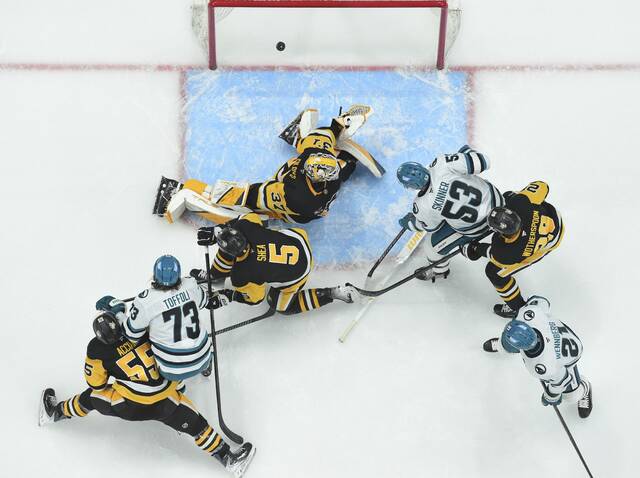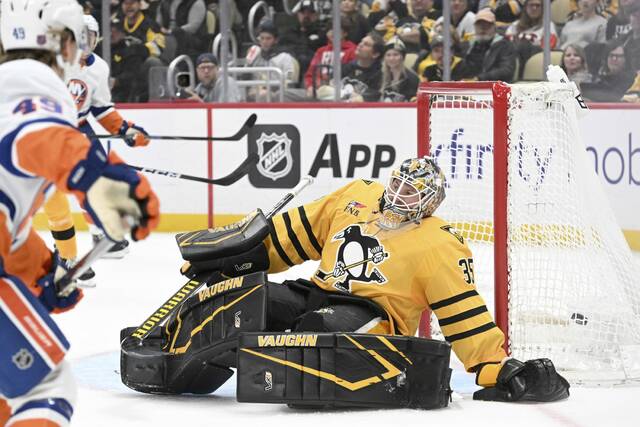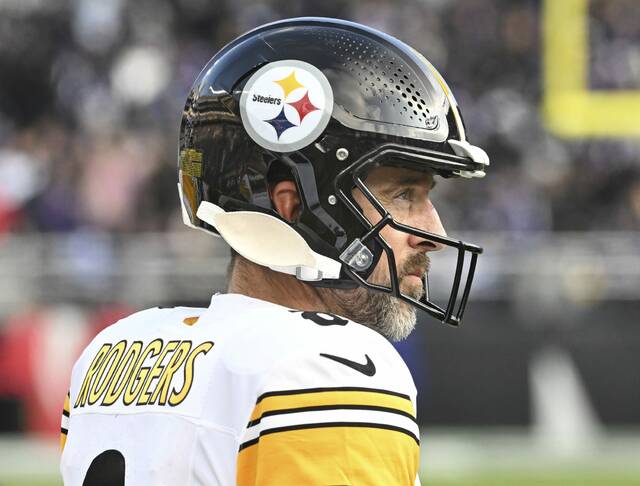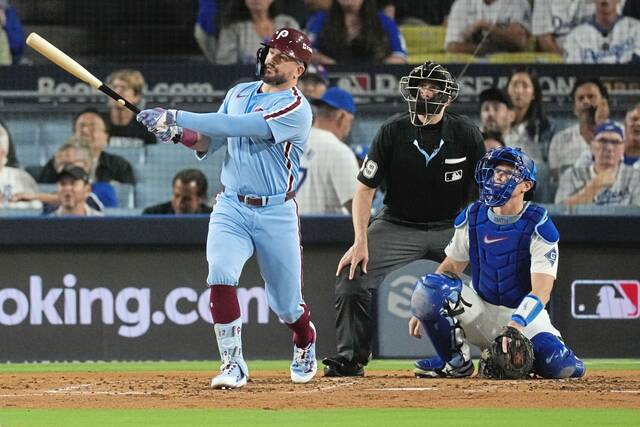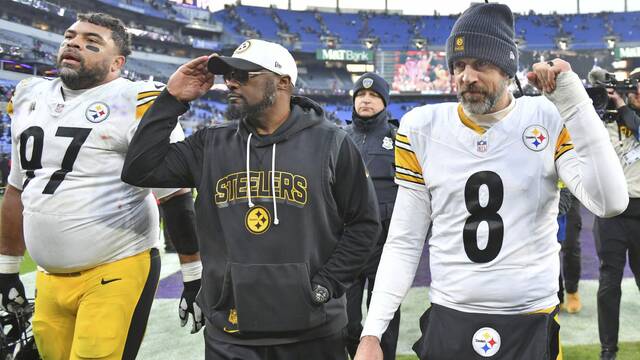Firing Mike Sullivan wouldn’t matter now, nor would a coaching switch have changed the course of the Penguins’ season had it happened earlier.
This isn’t 2009 0r 2016. These Penguins were going to go splat at some point, and that time is upon us.
But it’s fair to say that the Penguins’ performance since the New Year would get lots of coaches sacked.
The Penguins have won six and lost 12 in that span, have fallen out of realistic playoff contention and looked terrible doing it.
Sullivan’s two Stanley Cups may be sparing him unemployment. But those were a long time ago as per hockey’s timetable.
The Penguins waited too long to can Dan Bylsma because of his Cup win in ‘09. But Sullivan won twice and is a better coach than Bylsma.
That said, two of the Penguins’ major flaws are in areas impacted greatly by coaching: The power play and three-on-three overtime.
The Penguins don’t practice three-on-three overtime. They have played OT 12 times. They’ve won during three-on-three just twice. Draw your own conclusions.
The Penguins have never learned how to play three-on-three. They do the same as every other team, retreating with the puck in an attempt to stay ahead of the foe’s changes. But their play in transition is awkward, especially defensively. Their attack is weak.
Having skilled, fast defensemen like Erik Karlsson and Kris Letang should give the Penguins a big edge three-on-three. It hasn’t.
Evgeni Malkin looks like he thinks three-on-three is stupid and being forced to play it nauseates him.
That’s how Malkin looks on the power play, too. But at least he used to be good at that.
The coaches don’t tell the Penguins to mangle power plays by rarely putting pucks on net in favor of an endless stream of shot-passes that go awry and a constant search for a backdoor tap-in that almost never materializes.
But the coaches don’t stop that, either, so they’re guilty as charged.
The coaches do tell the Penguins to continually drop the puck to teammates coming with speed between the blue lines by way of attempted zone entry. It’s become cliched, predictable and easily foiled. Yet the Penguins keep doing it.
The Penguins rank 30th among NHL teams in power-play conversion at a rancid 13.7%. If their PP was even in the middle of the pack, they’d likely be a playoff team.
The power play has killed their season. It was 0 for 3 in their 5-4 home loss to the New York Islanders on Tuesday.
That defeat, of course, came in overtime. Their play in OT has also been a dagger to their hopes.
I write this column over and over. That’s the Penguins’ fault, not mine. Negative issues have stayed negative for 53 games. Nothing gets fixed, or even improves.
Five-on-five, the Penguins have a goal differential of plus-13. That’s eighth best in the NHL. Their goaltending is better than expected.
In certain areas, coaching has undoubtedly failed the Penguins. Perhaps because of poor tactics, more likely because the coaches can’t make the stars change what they prefer doing. Either way, the message seems lost.
Not practicing three-on-three is a massive indictment. Sullivan wants his players to be 200-foot all-around competitors.
But most are not. Anyway, there’s important points to be earned in specialty situations.
Erik Christensen was a nondescript bottom-six forward during his 143-game Penguins stint from 2005-08. But he was a giant in shootouts. He converted 14 of 23 while playing for Pittsburgh, a 60.9% success rate.
Christensen wouldn’t necessarily fit Sullivan’s 200-foot mold. But he was responsible for winning more games than the current Penguins’ entire bottom six combined.
The Penguins are 2-6 in games decided by three-on-three overtime, 1-3 in shootouts.
Sullivan’s future with the Penguins must be carefully considered at season’s end. He’s a great coach, but his present-day performance isn’t living up to his reputation or resume. He and his staff have been clearly lacking in certain critical areas.
That power play should be top 10 in the NHL. Look at the talent.
The Penguins shouldn’t appear absolutely lost playing three-on-three.
Sidney Crosby recently reaffirmed his intent to play his entire career with the Penguins. He implied it was a three-man commitment by him, Malkin and Letang.
Does that commitment include Sullivan, in Crosby’s eyes? Would the core three be willing to play for a new coach? Sullivan’s contract pays a reported $5.5 million per year and runs through the 2026-27 season. That factors in, too.
It’s going to be a complicated offseason for Kyle Dubas, the Penguins’ president of hockey ops/GM.


